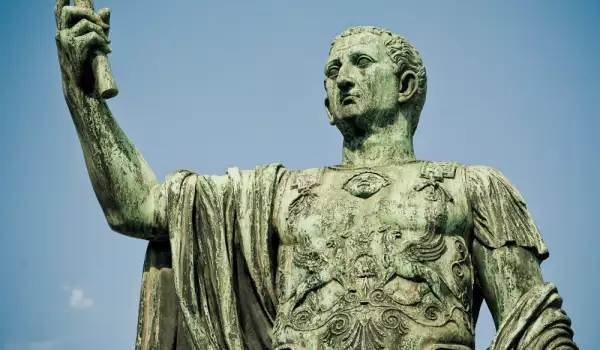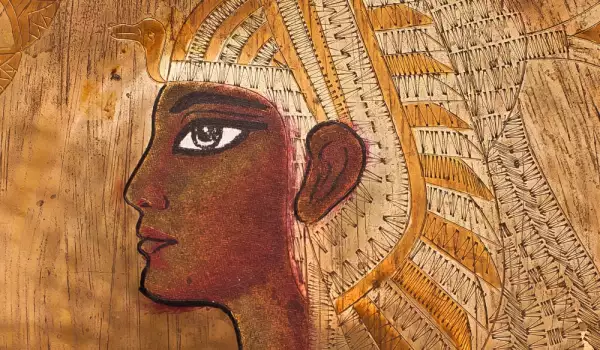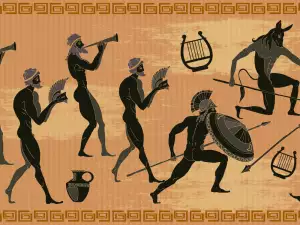Cleopatra was not only a substantial historical figure but also an image that would be used for years in the film industry. This had led to several myths that are untrue about the life of the Egyptian ruler.
Cleopatra was Egyptian
Cleopatra belonged to the Ptolemaic dynasty, which was actually Greek, while some sources even add that it originated from Alexander the Great, who appointed his relative - Ptolemy, as ruler of Egypt after he conquered it.
Cleopatra was the only member of the dynasty who learned the Egyptian language and strictly followed their rituals, which was why she was falsely believed to be Egyptian.
Her rule in Egypt was unlimited
Even though in movies Cleopatra is portrayed as a powerful ruler, the truth is that her authority was quite limited. At first, she shared rule with her younger brother Ptolemy XIII, whom she married at 17 years of age.

Thanks to her lover Julius Caesar, she dethroned her brother but ruled in accordance with Roman interests.
Cleopatra's beauty was unheard-of
Based on our current standards of beauty, Cleopatra was not as beautiful as the famous actresses who have played her role in the movies.
It's impossible to say with certainty how the Egyptian ruler actually looked like but sculptures and descriptions of her identify her as a woman with a slightly beaked nose, protruding lower lip and low forehead. But all sources agree that Cleopatra was an exceptionally smart and educated woman.
Cleopatra was romantic
Cleopatra was not romantic, but a woman who pursued her goals at all costs, tempting men of power. A common myth is that she appeared before Caesar, wrapped in a carpet. She actually managed to get to him unnoticed while hidden in a sack of dirty laundry.
After his death, she chose to stand by Mark Antony's side in the civil war that was brewing in Rome. It wasn't difficult for her to attract him by using her wealth to host lavish feasts.
Cleopatra was an ideal wife
Directly or indirectly, Cleopatra was responsible for the deaths of her husbands and lover Gaius Julius Caesar.
After she began an intimate relationship with the 50-year-old Roman ruler, 20-year-old Cleopatra set her brother and first husband Ptolemy XIII against the Roman forces. During one of the battles, the 12-year-old pharaoh drowned.

After this, the queen married her other brother Ptolemy XIV, who died mysteriously. Even though unproven, today it's still believed that she ordered him poisoned.
The Romans did not take kindly to the relationship between Cleopatra and Caesar, and the breaking point came when he brought her with him to Rome to live right under the nose of his lawful wife. At that point, his rivals used this to conspire to kill him.
Cleopatra was the one who encouraged Mark Antony to war against Octavian, for she was fully aware that fate wouldn't be kind to her if they were to agree on a truce. It was Mark Antony who died in this rivalry.
Cleopatra killed herself to follow in Mark Antony's footsteps
Once it became obvious that Augustus was about to conquer Alexandria, Cleopatra and Mark Antony swore an oath to commit suicide. Mark Antony fulfilled his oath, stabbing himself with a sword, but Cleopatra let herself be captured.
When she was taken to Octavian, she relied on her principal trick - she tried to seduce him in order to keep her rule over Egypt. But the queen had forgotten the fact that she was now 39 years old and after giving birth to her 4 children her figure was not the same as it was years ago.
Octavian had other plans for her. He said he would let her live so that she could walk after his chariot as a spoil of war, and then be strangled after the procession had ended. A fate which had also befallen other rulers bold enough to defy Rome.
However, Cleopatra refused to play out this role. She managed to trick her appointed guards and as soon as she was alone with her 2 handmaidens she killed herself. According to some she drank a poison, according to others she let a poisonous snake bite her.
In this sense, the Egyptian ruler died, more with the intention of saving her dignity and pride than out of love.









